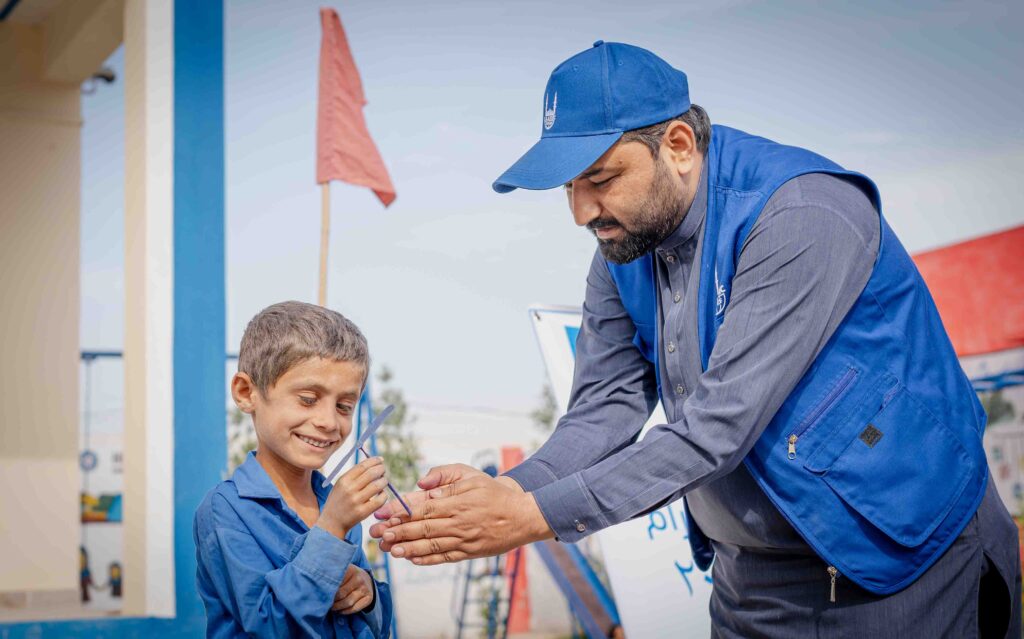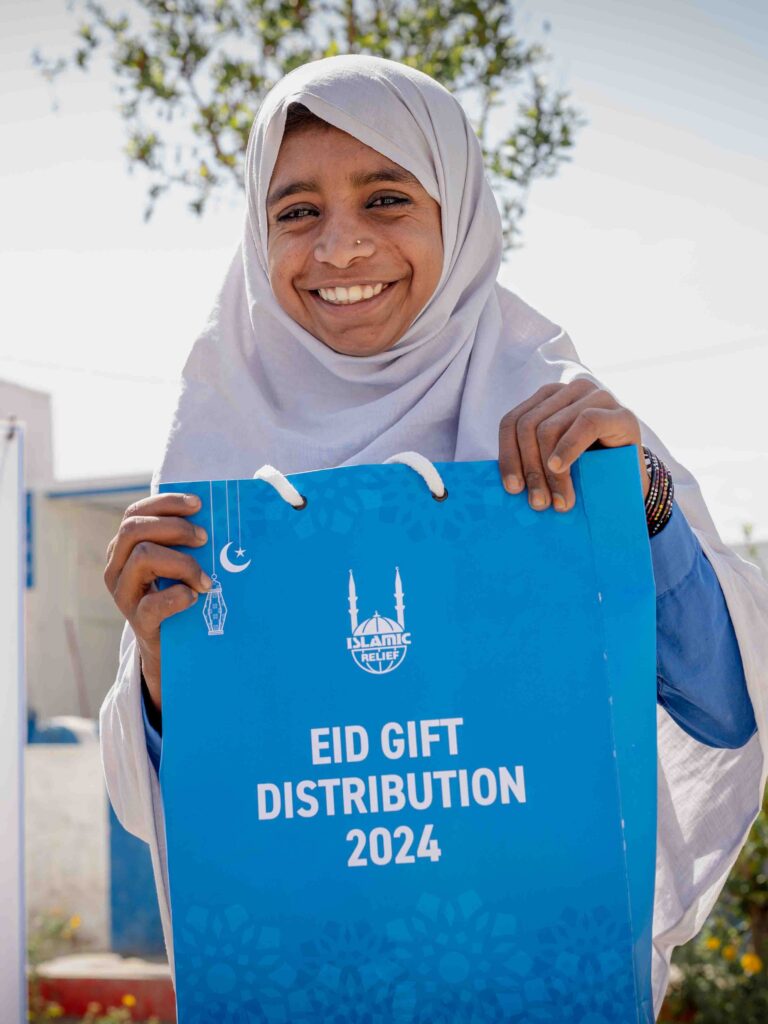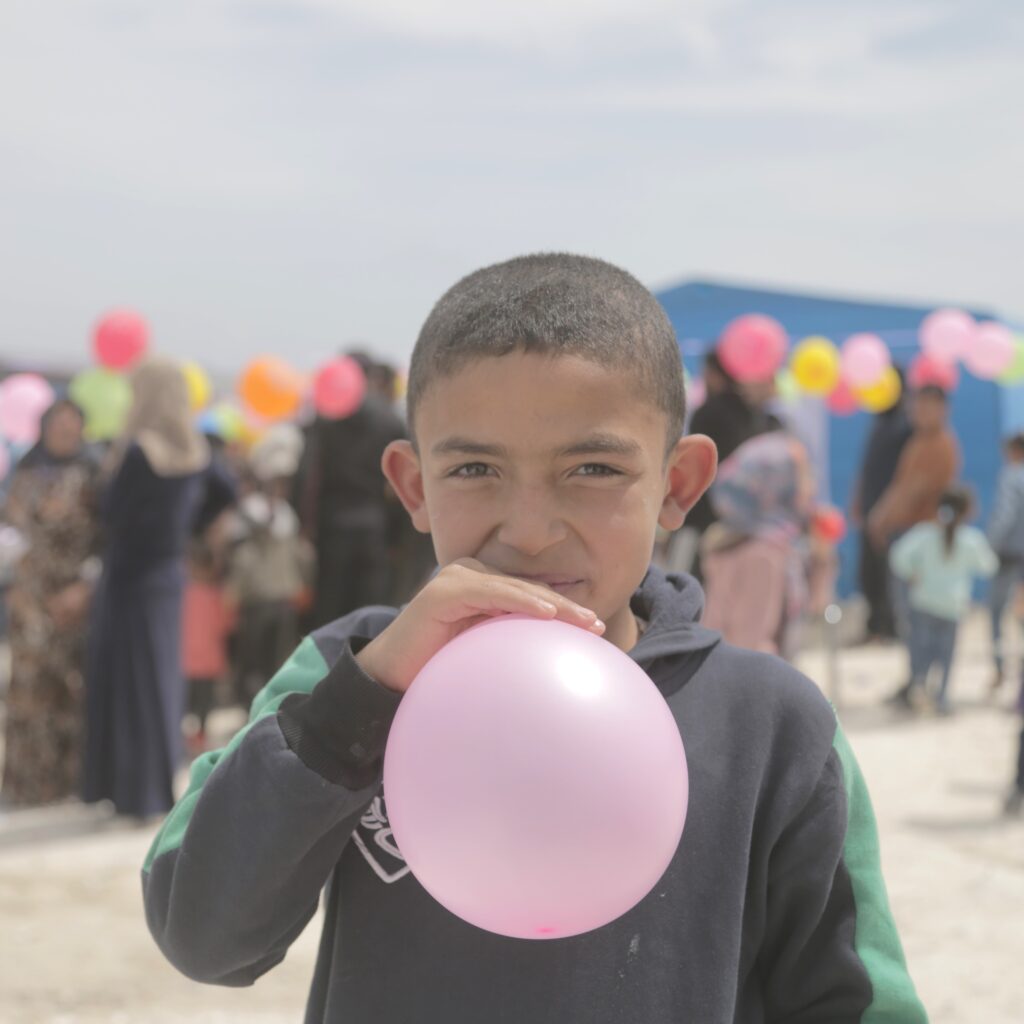Eid al-Fitr (Eid ul-Fitr) marks the end of the month of Ramadan, a period when Muslims around the world observe fasting, from dawn to dusk for a whole month. Taking place at the beginning of Shawwal, this Eid is a time for celebration with family and loved ones.
In the Islamic (Hijri) Calendar, there are two days out of the year dedicated to a celebration called Eid. The other Eid, Eid al-Adha, occurs on the 10th, 11th and 12 of Dhul Hijjah, the last month of the Islamic year.
Eid al-Fitr is likely to take place on the evening of Sunday, 30th March, 2025, depending on the sighting of the moon.
Unlike the more commonly used Gregorian calendar, the Islamic calendar operates on the lunar cycle. This means that all significant days in the Islamic calendar move forward approximately 11 days each year. Therefore, the sighting of the moon determines the end of Ramadan and the beginning of Eid.
As with each day in the Islamic calendar, the next day begins after the Maghrib prayer (just after sunset) of the same day. Eid begins after the moon has been sighted. Therefore, the last day of fasting ends at Maghrib.
Islamically, Eid al-Fitr lasts for one day, and is likely to be on Monday, 31st March, 2025, depending on the sighting of the moon. In the Islamic calendar, Eid al-Fitr takes place on the first day of Shawwal. This is the day in which Eid prayers take place, and it is forbidden to fast.
However, in many Muslim countries, the celebrations of Eid al-Fitr can last for up to three days. These days are usually public holidays, in which families and friends gather and celebrate the end of a month of fasting.
Eid al-Fitr differs from Eid al-Adha, which is unanimously celebrated for three days. See our article on how Muslims celebrate Eid al-Fitr.


Eid is a time for celebration with family and loved ones. There are many virtues to the day. It is also a period of rest and good tidings!

Therefore, Muslims are encouraged to do many things when celebrating Eid, such as:
Every Muslim is encouraged to pray Eid prayer in congregation with their fellow Muslim community to thank Allah (SWT) and enjoin in good.
It is the Sunnah of the Prophet (peace be upon him) to travel to the Eid prayer using one route and return home using a different direction. It was narrated by Jabir bin Abdullah:
On the Day of Eid, the Prophet (ﷺ) used to return after offering the Eid prayer through a way different from that by which he went.
Hadith | Sahih al-Bukhari
This is a day that all are encouraged to perform a ritual ablution (ghusl), wear their best clothes, wear attar (for men) and gather together with the community to bring in the celebration.
Share in the celebration of a day ordained by Allah!
This is encouraged all year round and especially on days that draw us closer to Allah.
There are many Sunan, acts the Prophet (ﷺ) used to do, that we can do on Eid day.
One of the first Sunnah is to perform ghusl, a full-body ritual bath, before leaving for the Eid prayer. We should also wear our best clothes on this day. These can be brand-new clothes or outfits we’ve saved for special occasions.
Another sunnah is to eat an odd number of dates or something sweet before leaving for the Eid prayer.
Attending the Eid prayer is also a significant part of the day’s celebration. The Prophet (ﷺ) also used to walk to the prayer, which we should do so as well, if we’re able.
The recitation of takbeer (“Allahu Akbar, Allahu Akbar, La ilaha illallah, Allahu Akbar, Allahu Akbar, wa Lillahil Hamd”) is also an essential sunnah for Eid day. We recite the takbeer while leaving our homes for Eid prayer until it begins.
After the Eid prayer, Muslims should greet one another with the traditional greeting, “Taqabbal Allahu minna wa minkum” (May Allah accept (our good deeds) from us and you).
All in all, Eid is a joyous occasion that brings us together in celebration and gratitude of Allah (SWT), especially when we follow our Prophet (ﷺ)’s example. See our article on the Sunan of Eid Day.
After a month of fasting in Ramadan, Eid al-Fitr is the occasion to celebrate its completion, with family, friends and community. A day when we visit loved ones, share gifts and food and pray Eid Salah in the congregation.

Furthermore, it’s also a day of showing happiness and gratitude to Allah (SWT) for allowing us to spend Ramadan in His worship. A day we’re encouraged to engage in increased dhikr (remembrance of Allah) as well as prayers.
Indeed, it’s important to remember Allah on all occasions. As the Prophet (ﷺ) reminded us:
"If anyone finds pleasure in receiving an answer from God in times of difficulty, he should make many supplications when times are easy."
Hadith | Tirmidhi
In Islam, Eid al-Fitr is a celebration that symbolises the rewards Allah (SWT) gives us for being patient and steadfast.
The name itself means “Festival of Breaking the Fast” and occurs at the of a month when we fast consecutively for 29 or 30 days from dawn to dusk.
Therefore, Eid al-Fitr can be seen to represent the bliss of the Hereafter Allah (SWT) promises those who engage in good. It also symbolises the importance of remembering Allah (SWT) on all occasions.
As Allah (SWT) promised us in the Holy Qur’an:
"Surely with hardship comes ease."
Qur'an | 94:6
After a month of fasting from dawn to dusk, physically, Ramadan can be quite tough for many Muslims. Eid ul-Fitr is a reward for this, and a day of celebration with family and friends.
The first Eid al-Fitr occurred in Madinah, 624 EC. It was in the second year after the Hijra Sharif, when early Muslims had completed their first month of fasting in Ramadan.
When the Prophet (ﷺ) arrived in Medina, he found people celebrating on two days, in which they engaged in recreational activities. Thereafter, Prophet Muhammad (ﷺ) announced two days of celebration. Eid al-Fitr, at the end of Ramadan, in Shawwal. And Eid al-Adha, in Dhul Hijjah.